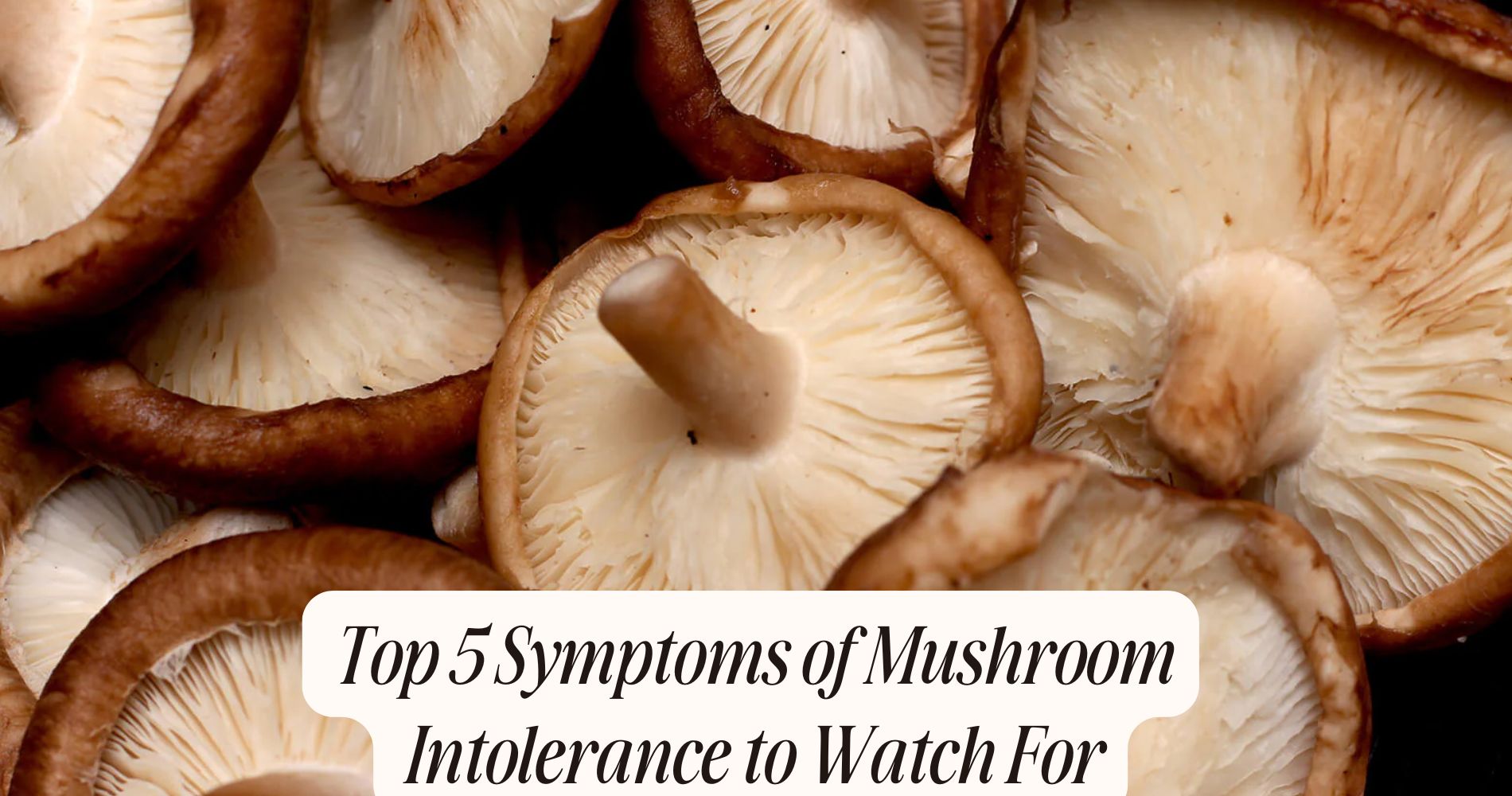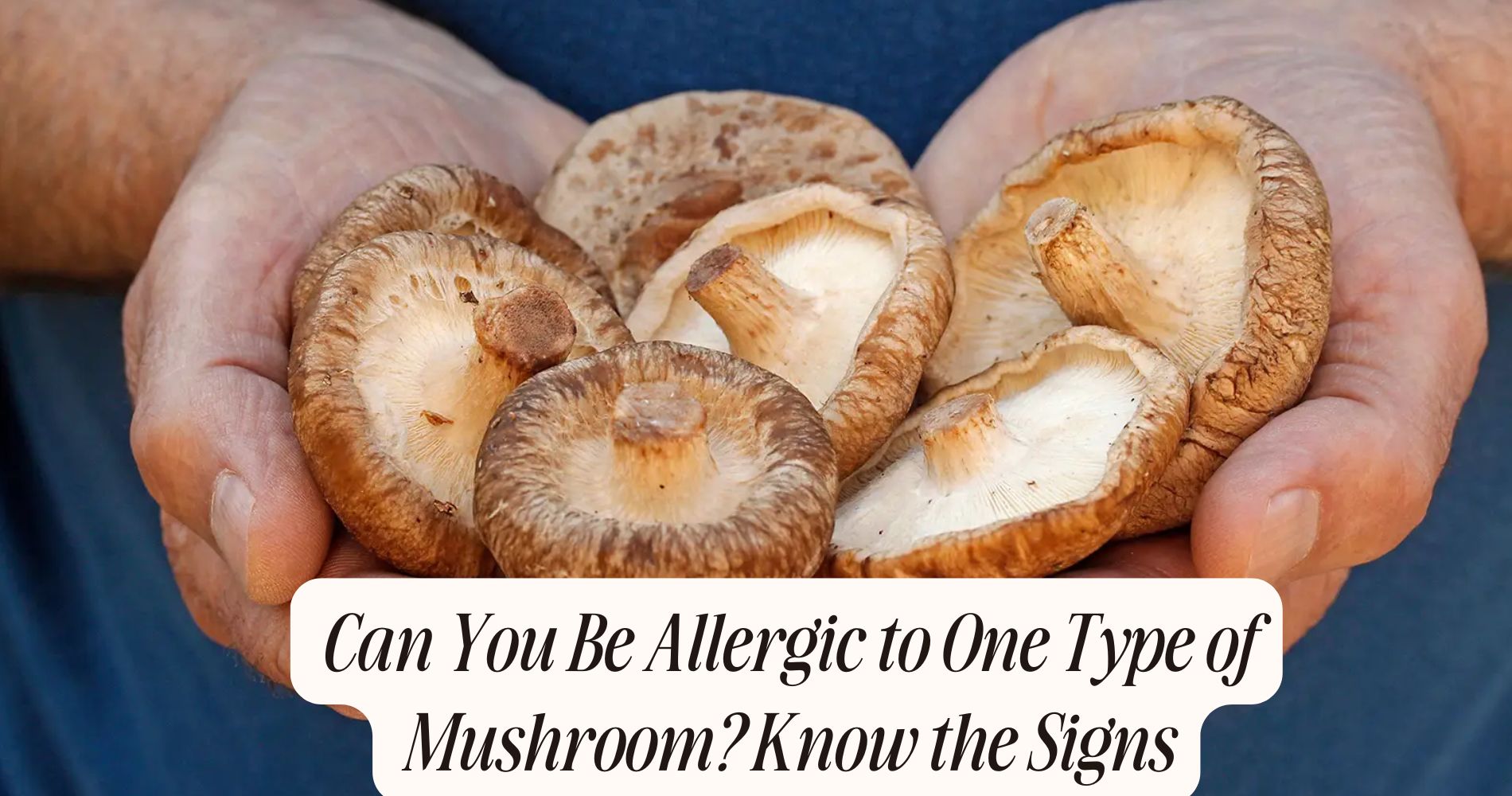
Top 5 Symptoms of Mushroom Intolerance to Watch For
Digestive Discomfort
Many people experience digestive discomfort after consuming mushrooms, which can manifest as bloating, gas, or abdominal pain. If you find yourself feeling unwell after a mushroom meal, it's essential to pay attention. Abdominal pain can range from mild to severe, often leading to significant discomfort. You might notice that certain varieties of mushrooms trigger this pain more consistently, suggesting a possible intolerance.
In addition to abdominal pain, nausea episodes can accompany your discomfort. You may feel queasy shortly after eating mushrooms, which can affect your appetite and overall enjoyment of meals. This combination of symptoms can be perplexing, as the severity can vary based on the type and amount of mushrooms consumed.

Understanding your body's reactions is key. Keeping a food diary can help you identify patterns and pinpoint specific mushroom types that cause distress.
If you suspect you have a mushroom intolerance, consider consulting a healthcare professional for proper diagnosis and advice. They can guide you on dietary adjustments to alleviate your symptoms and enhance your overall well-being. Recognizing these signs early can make a significant difference in managing your digestive health.
Bloating and Gas
Bloating and gas are common symptoms experienced after consuming mushrooms, often linked to their complex carbohydrate content. These carbohydrates, particularly polysaccharides, can be difficult for some people to digest, leading to fermentation in the gut. This process creates gas, which can cause uncomfortable bloating.
If you frequently experience these symptoms after eating mushrooms, it might indicate a mushroom intolerance or even a fungal allergy. Both conditions can trigger adverse reactions, including gastrointestinal discomfort.
To address this issue, consider making dietary adjustments. You might want to eliminate mushrooms from your meals temporarily and monitor how your body responds.
Additionally, keeping a food diary can help track your symptoms and identify specific mushroom varieties that may be causing you problems. If you notice consistent bloating and gas, it's wise to consult with a healthcare professional or a registered dietitian.
They can provide guidance tailored to your needs and suggest alternative foods that can help you maintain a balanced diet without mushrooms. Remember, understanding your body's reactions is key to managing any food intolerances effectively.
Skin Reactions
Skin reactions can occur after consuming mushrooms, especially for those with sensitivities or intolerances. If you notice skin rashes or experience itching sensations after eating mushrooms, it's crucial to pay attention. These symptoms may indicate an allergic response or food intolerance.
Skin rashes can manifest in various forms—redness, hives, or even eczema-like patches. These reactions can develop shortly after consuming mushrooms or may take several hours to appear. The itching sensations that often accompany these rashes can be uncomfortable and persistent, prompting you to seek relief through over-the-counter antihistamines or topical treatments.

If you suspect a mushroom intolerance, keeping a food diary can be helpful. Documenting your meals and any subsequent skin reactions can provide valuable insight. This information can assist healthcare professionals in diagnosing your condition, allowing you to make informed dietary choices moving forward.
In severe cases, skin reactions can escalate to anaphylaxis, a life-threatening response requiring immediate medical attention. If you experience swelling of the face or difficulty breathing alongside skin reactions, seek emergency assistance right away.
Fatigue and Weakness
Experiencing fatigue and weakness after consuming mushrooms can be another sign of mushroom intolerance. This reaction is often linked to your body's immune response to certain compounds found in mushrooms. When your immune system mistakenly identifies these compounds as harmful, it triggers an inflammatory response that can leave you feeling drained and weak.
In addition to fatigue, you might notice that your energy levels dip considerably after incorporating mushrooms into your diet. This can interfere with daily activities and overall well-being. If you've noticed this pattern, it might be worth considering dietary adjustments. Removing mushrooms from your meals can help alleviate these symptoms and restore your energy levels.
Pay attention to how your body reacts when you consume mushrooms. Keeping a food diary can be helpful in identifying any patterns between your mushroom intake and feelings of fatigue or weakness.
If you suspect mushroom intolerance, consult with a healthcare professional for further evaluation. They can guide you on testing and provide personalized recommendations to help you manage your symptoms effectively. By making informed dietary choices, you can improve your overall health and energy.
Headaches and Migraines
Mushrooms can trigger headaches and migraines in some individuals, and recognizing this reaction is essential for managing your well-being. Different mushroom types, such as shiitake or portobello, can cause varying degrees of sensitivity. If you notice a pattern where headaches follow mushroom consumption, it may indicate an intolerance or allergic reaction.
The connection between mushrooms and headaches lies in their biochemical composition. Certain compounds in mushrooms can provoke inflammatory responses in susceptible individuals, leading to migraines. Additionally, the histamines produced during digestion can exacerbate headaches, especially if you're already prone to them.

It's vital to track your reactions. If you experience headaches consistently after eating mushrooms, consider eliminating them from your diet for a while and observe any changes. Keeping a food diary can help identify triggers more effectively.
Consulting a healthcare professional can provide guidance on testing for intolerances or allergies. They may recommend specific dietary adjustments to help manage your symptoms.
Being aware of your body's responses helps you make informed choices about mushroom consumption and maintain your overall health.
A Gentle and Convenient Alternative: Well Gummies SUPER MUSHROOM GUMMIES
If you’re concerned about mushroom intolerance but still want to enjoy their benefits, Well Gummies SUPER MUSHROOM GUMMIES are an excellent option. Carefully crafted with ten functional mushrooms, these vegan gummies offer support for energy, focus, and immune health in an easy-to-digest gum chew form.
With a fresh wild berry flavor and no jitters or crashes, they provide a safe and enjoyable way to incorporate mushrooms into your wellness routine. Take the worry out of mushroom consumption with Well Gummies!
Frequently Asked Questions
Can Mushroom Intolerance Develop Suddenly in Adults?
Yes, mushroom intolerance can develop suddenly in adults. Increased adult sensitivity to certain foods may occur due to changes in the immune system or diet, leading to unexpected reactions even after years of tolerance.
Are Certain Mushroom Types More Likely to Cause Intolerance?
Certain common mushroom varieties, like shiitake or portobello, might trigger intolerance more than others. Additionally, mushroom preparation methods, such as frying or pickling, can influence how your body reacts to these fungi.
How Can I Differentiate Between Intolerance and Allergy?
You can differentiate between intolerance and allergy by evaluating your body's immune response. Intolerance often involves digestive issues, while an allergy triggers a more severe immune response, including hives or difficulty breathing. Observe your reactions closely.
Is There a Test for Mushroom Intolerance?
There isn't a specific test for mushroom intolerance. Instead, you can monitor your mushroom digestion and note any symptoms after consumption. If you suspect fungal sensitivity, consult a healthcare professional for further evaluation and guidance.
What Dietary Alternatives Exist for Mushroom Lovers?
If you love mushrooms but need alternatives, consider using mushroom substitutes like eggplant or tofu. Experiment with different cooking techniques, such as roasting or sautéing, to capture that satisfying umami flavor without the actual mushrooms.
Conclusion
If you suspect you have a mushroom intolerance, it's essential to pay attention to your body's signals. Digestive discomfort, bloating, skin reactions, fatigue, and headaches can all indicate an adverse reaction. Keeping a food diary can help you identify patterns and triggers. If these symptoms persist, consider consulting a healthcare professional for proper diagnosis and management. By understanding your body's responses, you can make informed dietary choices and improve your overall well-being.




